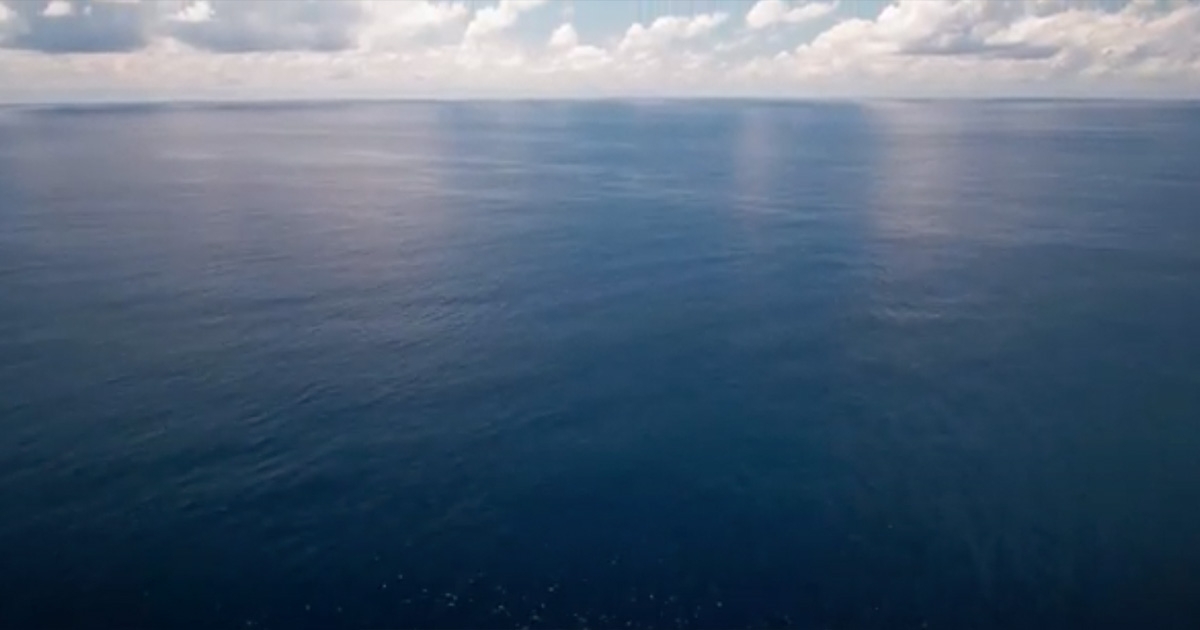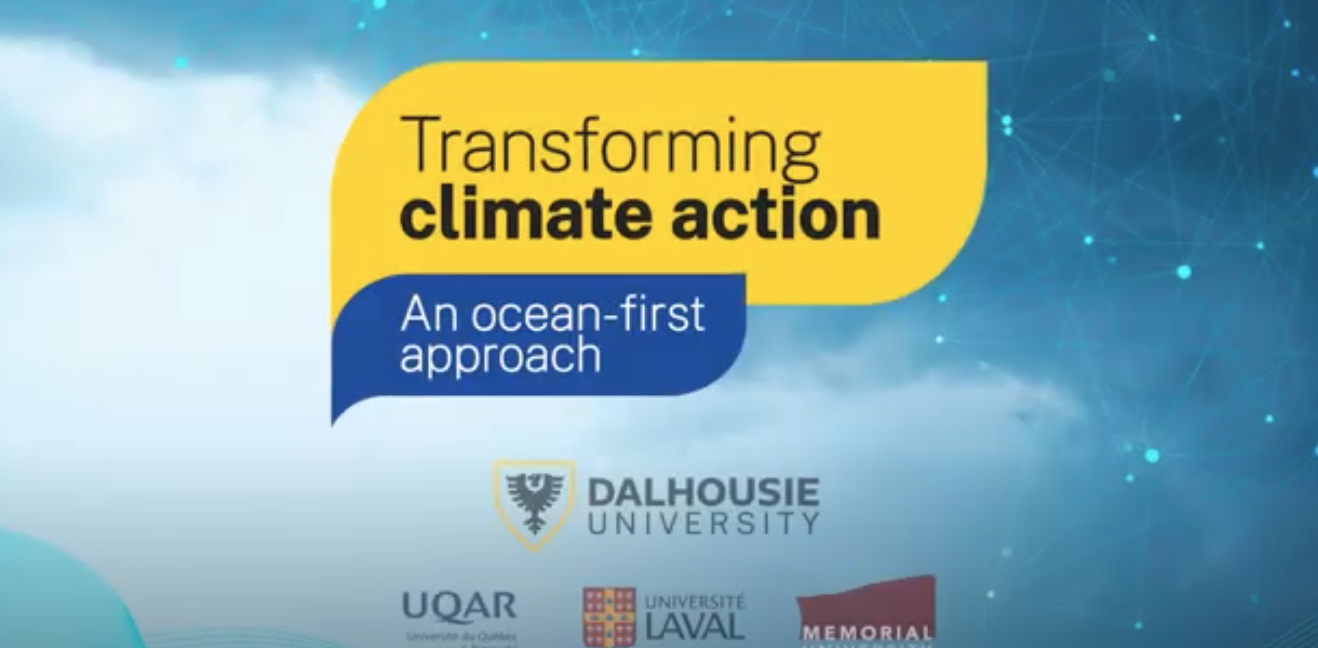Dalhousie University Receives Historic $154-million Investment to Study the Ocean’s Pivotal Role in Climate Change

Dalhousie University will receive $154 million from the Canada First Research Excellence Fund (CFREF) grant program announced today by the Hon. François-Philippe Champagne, Canada’s Minister of Innovation, Science, and Industry, at Concordia University in Montreal.
The program, Transforming Climate Action: Addressing the Missing Ocean, will bring together researchers at Dalhousie and its academic partners — Université du Québec à Rimouski, Université Laval, and Memorial University— to embark on the most intensive investigation ever into the ocean’s role in climate change to ultimately deliver benefits to Canadians, communities and the economy.
“I want to thank the federal government for this significant investment, the largest ever made in research at Dalhousie,” says Dr. Frank Harvey, president and vice-chancellor (acting). “As Canada’s leading ocean research university, with a team of more than 100 ocean-focused researchers and world-leading ocean research centers, we’re thrilled to partner with Laval, UQAR and Memorial to address the challenge of Transforming Climate Action and to undertake this critically important research.”
The global ocean holds 90 per cent of the Earth’s carbon and has absorbed 40 per cent of fossil fuel emissions to date. It removes more CO2 from the atmosphere than all the rain forests combined. Emerging science shows the ocean’s ability to absorb and hold carbon is changing in ways we don’t understand.
“The ocean is protecting us against the worst impacts of a warming planet. But exactly how, and for how long it can do so, are critical scientific questions that need answers urgently,” says Dr. Anya Waite, Dalhousie’s associate vice-president (ocean) and scientific director and CEO of Dalhousie’s Ocean Frontier Institute. “Without a better understanding of the ocean’s role in mitigating global warming, our efforts to meet global climate targets and avert the worst impacts of climate change are at serious risk.”
Transforming Climate Action brings together more than 170 researchers at the four partner universities, spanning diverse disciplines such as oceanography, atmospheric science, Indigenous scholarship and knowledge, engineering, data science, maritime law, immigration policy, and social justice.
 The scientific strategy for Transforming Climate Action has three key objectives:
The scientific strategy for Transforming Climate Action has three key objectives:
- Reducing uncertainty
Through unprecedented data collection and analysis of the North Atlantic carbon sink — a critical ocean system that absorbs 30 per cent of carbon taken in by the global ocean annually — Transforming Climate Action will reduce uncertainty about the ocean’s role in climate change to improve climate change forecasting, climate and regional adaptation strategies, and technologies to conduct ocean research.
- Mitigating climate change
In addition to developing approaches to reduce ocean sector emissions, the partner universities will collaborate with Indigenous, industry, and community organizations to safely and responsibly advance the science, technology, and enterprises to position Canada as the global leader in ocean-based carbon dioxide removal.
- Adapting equitably
Transforming Climate Action researchers will advance people-centric adaptation to ocean and climate change based on science, co-designed with communities, and informed by Indigenous ways of knowing. The research team will lead change through social impact assessment, advances in education and information sharing, influencing change to legal and regulatory frameworks, and drawing on the deep connections coastal communities have with the ocean.
“Transforming Climate Action will focus the world’s attention and energies on the primary importance of the ocean in determining climate policy, shifting the global discourse and positioning the partner institutions as leaders in evaluating and mitigating the impacts of climate change,” says Dr. Alice Aiken, Dalhousie’s vice-president of research and innovation.
Dalhousie’s Ocean Frontier Institute will play an integral role in the leadership and management of Transforming Climate Action, connecting researchers to a global community focused on climate-ocean science, policy, and advocacy. With the support of 40 national and international partners, including industry, research, government, and NGO partners, and deep institutional connections with Indigenous peoples and communities in Atlantic Canada and Quebec, the partner institutions are uniquely prepared to bring a collective approach to climate action.
The research program allocates significant funding for Indigenous-led research and will build on deep existing knowledge and research by Indigenous researchers, communities, and organizations in the areas of climate change and mitigation. Indigenous-led research partnerships will ensure that science and policy recommendations are guided by Indigenous values and traditional knowledges.
“Our relationship with the ocean is an ancient one, built on balance, respect and knowledge passed down from generation to generation,” says Angeline Gillis, Executive Director of the Confederacy of Mainland Mi’kmaq, an official partner of Transforming Climate Action. “The resources provided by Transforming Climate Action will provide a unique opportunity to bring together our common experiences and understandings of the Ocean, in a partnership that will ensure we move towards a sustainable future for our children.”
Through powerful global partnerships, Transforming Climate Action will identify and bring together the ocean and climate data required to advance novel ocean-climate research and outcomes.
“The ambition is not just to enable strong research, but to mobilize data to create a better-informed country, better-informed policies and a transformative effect on how we respond and manage the ocean-climate nexus,” says Dr. Mike Smit, acting dean of the Faculty of Management and an information scientist who will lead the data management project that is central to the Transforming Climate Action research program.
“The partnerships we have established between our researchers and national and international industry partners will mobilize knowledge from benchtop to industry to create economic impact for Canada and demonstrate Canada’s global leadership in developing and scaling ocean-climate science and innovation from minds to markets,” says Eric Siegel, chief innovation officer at Dalhousie’s Ocean Frontier Institute.
Learn more about Transforming Climate Action www.transformclimateaction.ca.
Learn more about the Canada First Research Excellence Fund.

